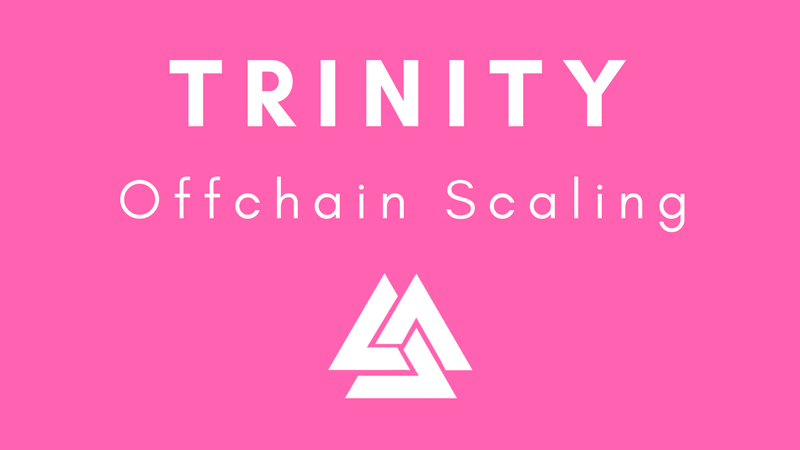Scalability remains one of the biggest problems in the world of cryptocurrency and blockchain technology. Overcoming it successfully will warrant a very unique approach. For Ethereum, a major development is on the horizon. The first alpha of the Trinity client for Ethereum heralds a new era for this ecosystem.
Trinity can be a Game Changer
A few months ago, the cryptocurrency and blockchain community was introduced to a concept known as Trinity. It is a project which provides additional scaling solutions to specific projects. At first, it was only supposed to support the NEO network, which was considered a rather interesting choice. Given the centralized nature of NEO, however, extra scaling is more than welcome for this project in its current form.
A few weeks later, news broke that Trinity would support Ethereum and Zilliqa as well. Improving on-chain scaling for blockchains and cryptocurrency projects will not be easy by any means. Although the Ethereum developers are working on their own scaling solutions, it never hurts to have alternative options available.
Scaling is incredibly important for any project involving smart contracts. Considering that all three of the supported platforms offer smart contract capabilities, it makes sense that there would be a lot of expectations in regards to Trinity. Whether or not the new protocol can deliver on its initial promise remains to be determined at this stage.
Nevertheless, the Ethereum community seems quite excited about the first alpha release of Trinity for Ethereum. While it’s still limited in terms of providing scaling improvements, it is a first look at what the future may hold for Ethereum and some of its competitors. This first alpha has been nicknamed “Valentina Tereshkova”, though it’s a bit unclear why.
It will be interesting to see how things play out for Trinity in regards to Ethereum, as well as the other supported currencies. There is a growing need for additional scaling, especially when it comes to increasing the overall transaction throughput. Ethereum has a lot of network nodes, so increasing the throughput should not be much of a challenge in the long run.
Combined with all the other upcoming developments for Ethereum, it is evident that this particular project will undergo some major changes in the coming months and years. As of right now, Ethereum is in a good position to make a major impact on the industry as a whole. Bitcoin is also ramping up its scaling process, although questions regarding the Lightning Network remain.

